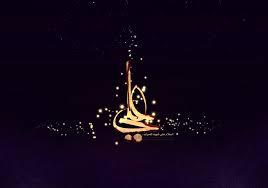
Many people may know Ali ibn Abu Talib or ‘Imam Ali’ as a distinguished warrior and a man with unmatched bravery. But the other side of him that is equally unique, is the treasure of knowledge that he carried with him.
A glimpse of this treasure can be seen in his many wise words that address almost every aspect of the human’s life.
Ali was the cousin of the Prophet Muhammad- the final Prophet for Muslims- and he was the father of Hussain ibn Ali. He was born to Fatima bint Asad and Abu Talib, the uncle to Prophet Muhammad. His birth was a remarkable event. He was born on the 13th of Rajab – the seventh month in the lunar calendar- 21 BH (Arabic/Lunar calendar, before the migration of the Prophet to Medina) in the city of Mecca in modern day Saudi Arabia. He was the first and the only person to be born within the Holy Ka’ba, the actual cubic shaped structure at the centre of the Holy mosque- currently covered in black drape.
The side from where his mother entered into the Ka’aba, can still be seen on the southern facing corner. It is well marked by a crack in the walls and despite several attempts to fully seal it over the centuries, it is still there.
From day one, Ali was seen as the right hand man to the Prophet. When he was born, the Prophet was thirty years old, so he grew up under his supervision and was heavily influenced by the personality of his older cousin.
Notably, he was the first person to embrace the religion of Islam, he was only 10 years old.
After years of suffering under the Meccans’ hostility, the Prophet had to migrate from Mecca to Medina. They were determined to stop him, and they planned kill him. Ali was the one person who offered to sacrifice himself by sleeping in the bed of the Prophet to thwart the assassination attempt and save the Prophet’s life.
Upon his arrival to Medina, there was a large migrant community from Mecca, who lost everything back home. Hence the Prophet launched a brotherhood initiative, through which each citizen of Medina would embrace a new migrant from Mecca, as a brother. After everyone has been paired, he embraced Ali as his brother. From then onwards, he was known as the brother of the Prophet.
As it is the nature of life with its never ending new challenges, the people needed someone to continue to guide them through the these new tests after the Prophet’s death. As such, approximately two months before the Prophet’s death and upon the final Hajj/pilgrimage of the Prophet, he stopped in an area known as Ghadir Khum and it was revealed upon him there that religion would only be completed with the designation of Ali as his successor.At the age of 22, he was engaged and married to Fatima, the daughter of the Prophet. With this, Ali had four children born to Fatima: Hassan, Hussain, Zainab and Umm Kulthoom. The bloodline of the Prophet now continues through the lines of Hassan and Hussain.
Even though Ali did not assume political leadership of the Muslims until 25 years after the death of the Prophet. Despite this, his position in society, as the Prophet clearly labeled it: “I am the city of knowledge and Ali its gate”, was never compromised. However, it is up to the people whether they choose to utilise the guidance that is left for them, and sometimes people need time to realise this.
In Ali’s case, it took the people of his time 25 years to come to the conclusion that Ali was their only hope. But not everyone agreed on this. His time at as the ‘Caliph’ was troubled by several attempts to disturb the harmony of society. He fought three wars, two of them against very important players in shaping history.
One was against Muawiyah- the the founder of the monarchy approach in the Muslims’ political history and the man behind the worst campaign to defame the Prophet of Islam by fabricating stories against him and distributing them within his own heritage. Muawiyah was the son of the main political figure in Mecca who launched several wars to kill the Prophet and to end his message, and Muawiyah himself took parts in these wars. Him and his father pretended to accept Islam in the last three years of the Prophet’s life. Ironically, he is also the father of Yazid, the dictator who Hussain Ibn Ali would later face in his struggle to reform society.
The second were the Kharijyat; the extremist group that took religion as a cover, with superficial interpretations, to justify their intolerant views of life and people. They believed, quite similar to the modern day extremists, that it was only them who had the true interpretations of faith and that anyone who differs with them, is a disbeliever, who did not deserve to live.
Ali was the first to combat them, initially with free public debates in his newly chosen capital, Kufa – modern day Iraq. But when they took arms to force people to accept their views, he launched a successful military campaign against them. Unfortunately though, some of their ideas were passed on and have been revived during our time today.
Four years into his rule, and whilst he was praying the dawn prayers in the city of Kufa, on the month of Ramadhan, Ali was struck on the head with a poisoned sword during prostration by a member of the Kharijyat group; Abdul Rahman ibn Muljim. He died two days later as a result of his injuries and was buried in the holy city of Najaf in Iraq, where he resides till this day.
“Live amongst people in such a manner that if you die they weep over you and if you are alive they crave for your company.” – Ali ibn Abu Talib
source : shafaqna.com













